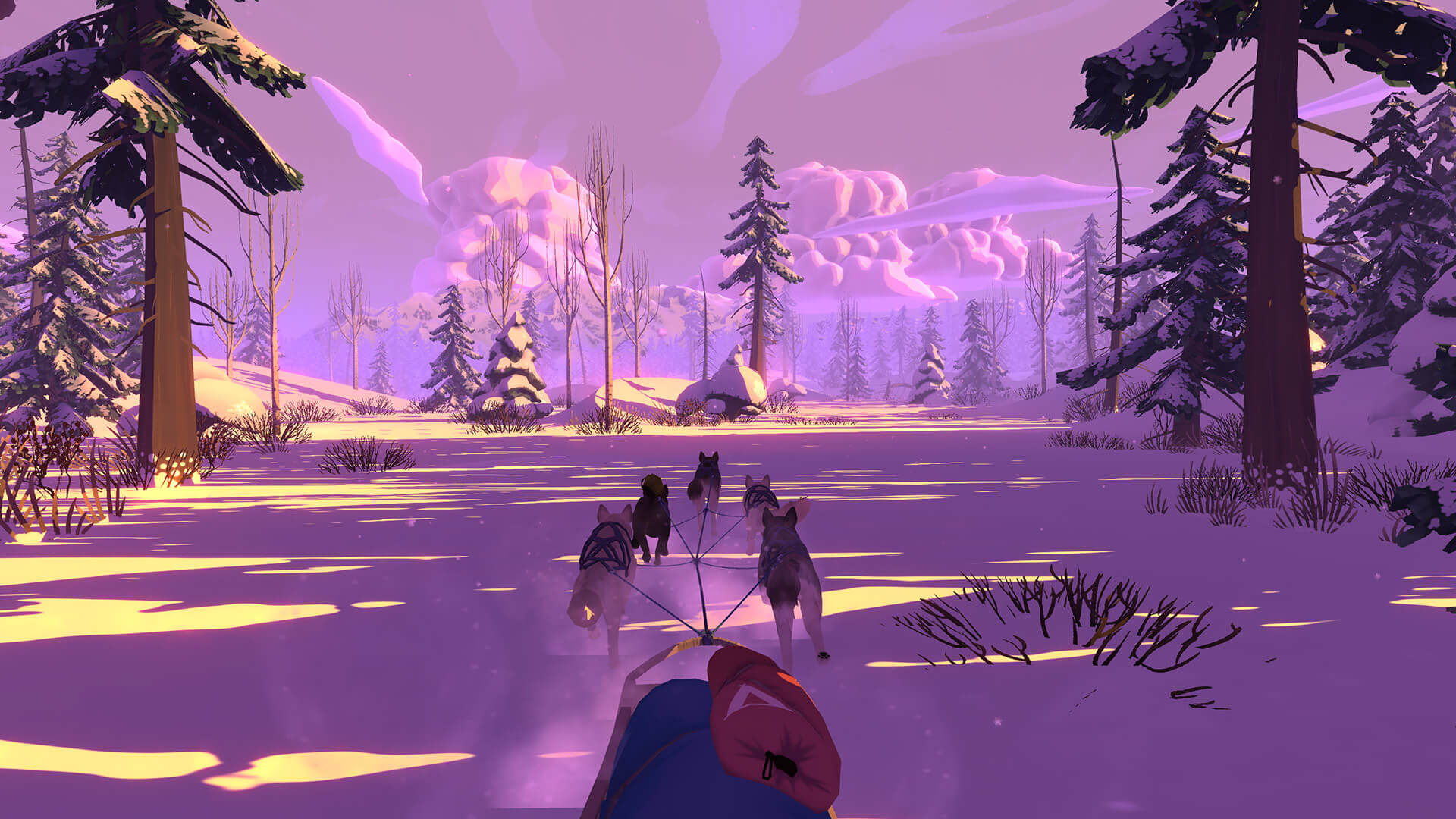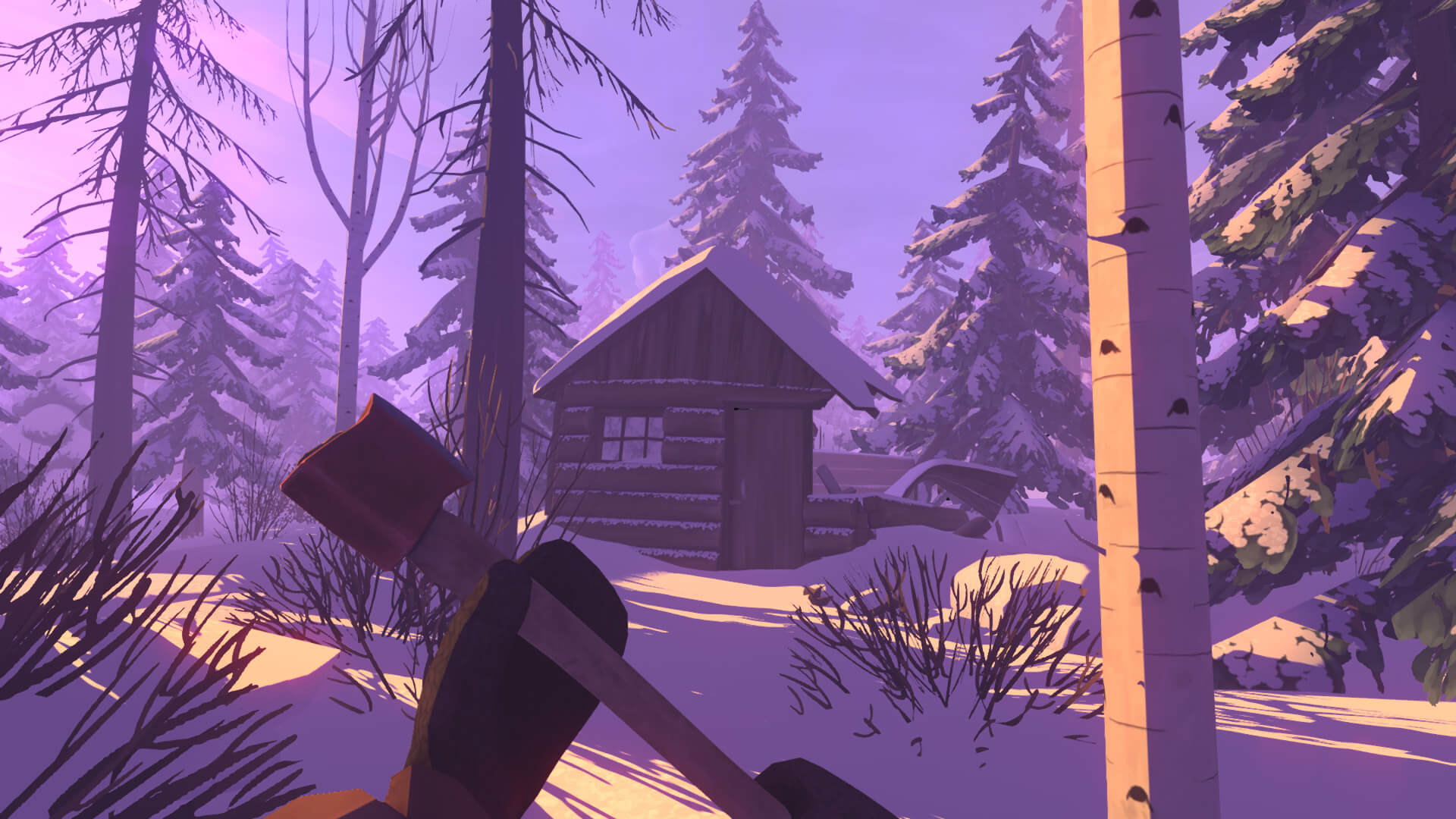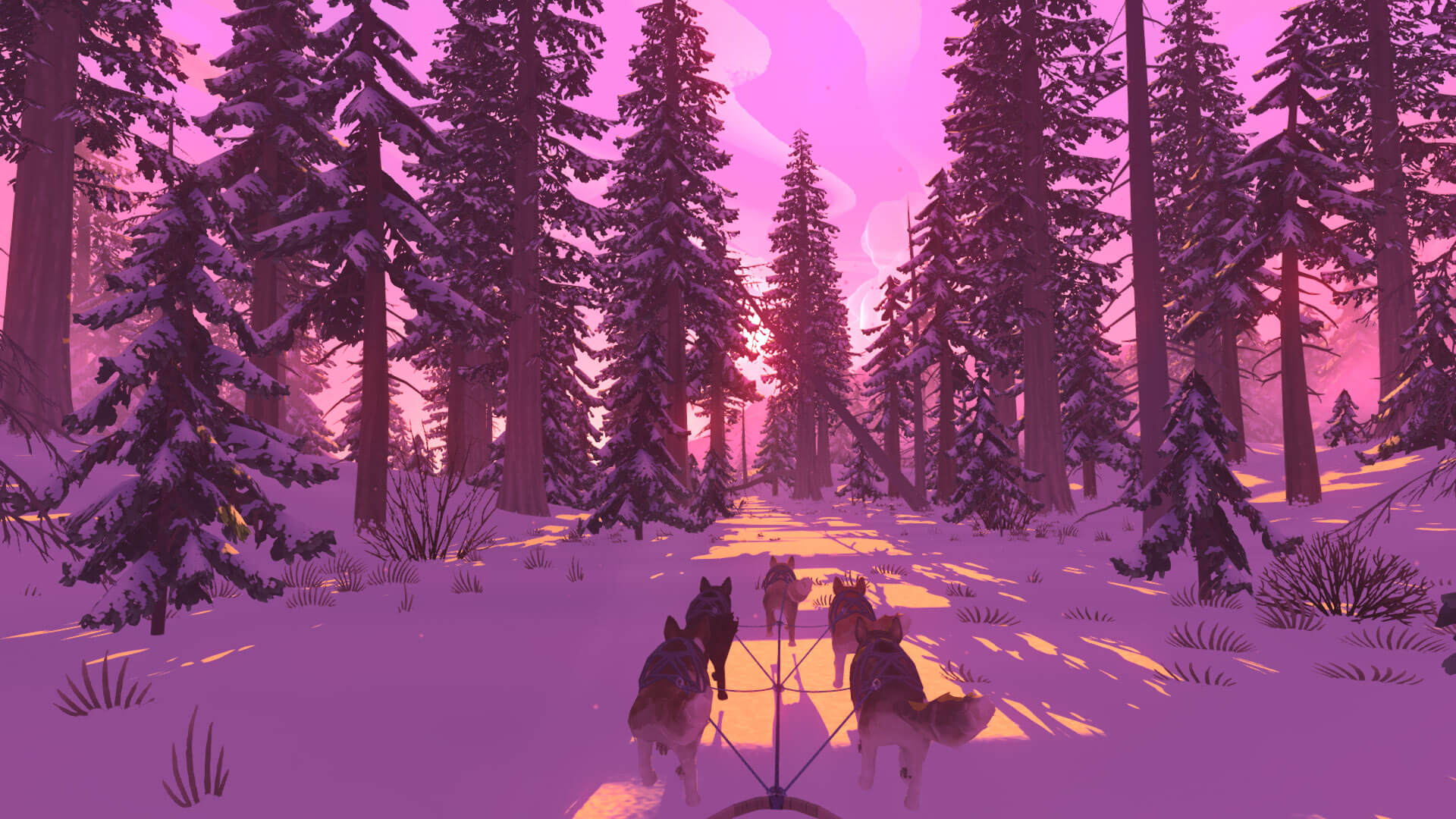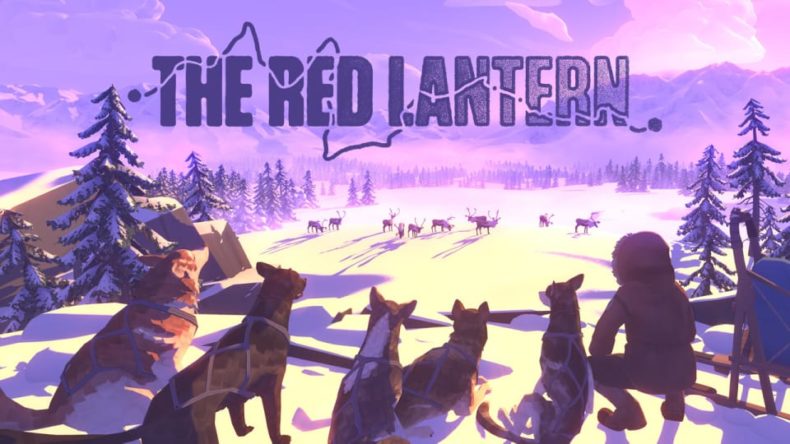October 9, 2020
Let’s get the important stuff out of the way. Yes, you can pet the dog in The Red Lantern, and no you cannot pet the Caribou. Actually, I think I need to clarify, you can pet up to five dogs, and petting the Caribou will likely leave you with a life-threatening injury.
In Timberline Studio‘s debut game you play The Musher, a young woman venturing out into the Alaskan wilderness to find herself, or something. She’s been gifted a remote cabin by an old friend, and is heading there to live a life of simplicity, the only issue is she has to get there. Careful resource management, as well as a huge amount of luck will be your only guarantors of success as The Red Lantern is a survival-roguelite where random throws of the dice might well mean everything is over.
Play is largely passive in The Red Lantern. You will be spending a lot of time watching the wiggly butts of your dog team as they gallantly pull you to your destination. You will also spend an awful lot of time listening to yourself rambling on about this or that. The voice of The Musher is warmly narrated by Ashly Burch, but there is something off about it. The pace at which she speaks feels unnatural, and you will hear the same few voice lines over and over as the nature of rogue-lite titles has you repeating the same few steps again and again until you are successful. “Ready to make some food” and “Thanks for waiting for me pups” becomes particularly grating after you have heard it several times over.

And you will be doing things over, and over. Your task is to get from Point A (your minivan) to Point B (the cabin). It seems simple enough, but you won’t ever get the opportunity to directly control your team. Your only options are to occasionally yell Haw or Gee for left and right, and respond to random events that might occur along the way with a simple choice of ignoring or investigating. Even then your control is limited to a number of scenarios. You might stumble across a long abandoned cabin and find nothing, or you could take five minutes to watch an Artic Fox diving head-first into the snow. Neither scenario helping you with the gruelling journey ahead.
Other times you might come across a Caribou that you can choose to shoot for much needed food or make the ridiculous choice of petting it. If you choose to kill the Caribou for its meat you’ll have to shoot it with the one of the scarce amounts of bullets you brought with you. Choosing to shoot will launch you into a weird mini game that has two icons randomly bouncing around on the screen like some retro screen-saver that you’ll have to line up to get a perfect shot. Failure will mean a lost bullet from your ever decreasing supply and crucially, no food for yourself and your dogs.

Managing resources is pretty straight-forward. There’s a supply of meat, some birch bark for a campfire, a med pack for any injuries you or your pups might sustain on the journey and your ammo. You’ll also have to monitor your hunger and your sled team’s energy levels, making camp when they become low to eat and rest. If you run out of any of these things and your hunger reaches critical point or you fall asleep means that will be the end of your run. Interestingly, this is shown as you wake up from a bad dream in your mini-van, and significantly if you failed the previous run because you didn’t pack enough food initially, you will start the next run with another slab of meat added to your collection. If you ran out of bullets, or died from your injuries, you will be equipped with one more of those items for your next attempt.
Failure then is the means to progression, but whereas most roguelites use failure as a mechanic for learning, that isn’t the case here. You are relying way more on luck and a roll of the dice than any level of skill. There is no avoiding a certain route because that way danger lies, you just have to make your choices and live with the consequences. You need to fail in order for the Musher to have some forward thinking and pack an axe for stripping the bark. You need to fail for her to remember to bring enough meat to feed not just herself but her pack of dogs too, and you need to fail for her to think about the possibility that she or her dogs may become injured on the trail. Mechanically, I understand why this is a function, but narratively speaking I am seriously questioning the smarts of this young woman to be able to survive in a hostile landscape if she hasn’t got the foresight to pack even the basic of essentials.

Fundamentally, the game play loop didn’t work for me. The over reliance on luck and the total lack of active play made the constant failures a frustration more than anything. I never felt like I was learning anything from each run. Being rewarded with a slightly easier run the next time because the last was an abject failure kind of removed the sense of achievement when I did eventually make a successful one. Finally arriving at the cabin because I have died from starvation one too many times and have had a successful dice roll feels kind of flat.
It does look pretty though, with soft, stylised visuals. You’ll travel through pine forests and over vast frozen lakes that shimmer in the sunlight, and as the light changes the world takes on a purple and orange hue as the trees cast long shadows over the crisp snow. The dogs are all nicely drawn and distinctive, and even have their own traits and personalities that can affect a particular run. It’s just a shame that everything else is taken from you, other than petting them of course.
You can pet the dogs
Pretty visuals
Good voice over work
Poor implementation of voice work
Too much reliance on luck
Game play feels too passive
The Red Lantern is a suvival-roguelite where you will have to face the harsh landscapes of Alaska with your dog sled team. You can pet the dogs, but most of the action feels very much down to the luck of the dice rather than any active participation from you.





